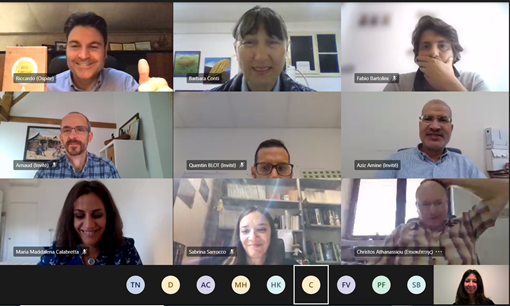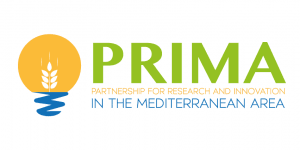29 September 2020
On September the 29 2020, the kick-off meeting of FEDKITO – FrEsh fooD sustainable pacKaging In The circular economy – took place in the virtual space shared between the nine partners.
The FEDKITO project is funded by the PRIMA programme, aimed at developing knowledge and devising innovative solutions in R&I approaches to improve water availability and sustainable agriculture production in the Mediterranean area (http://prima-med.org/ ).
The FEDKITO Project is coordinated by Prof. Barbara Conti, entomologist of the Department of Agricultural, Food and Agro-Environmental Sciences of the University of Pisa and gathers an international team involving Université Hassan II de Casablanca (Morocco), Sorbonne Université (France), Center of Biotechnology of Borj Cedria (Tunisia), Center Technique Industriel de la Plasturgie et des Composites of Bellignat (France), University of Bologna (Italy), University of Thessaly (Greece), GP Retail Srl (Italy) and Azienda Furio Salvadori (Italy)
Quality and shelf life of fresh food (fruits, vegetables, meat and dairy) are affected by microbial contamination and insect attacks, that may be exacerbated by non-optimal logistics at post-farming and retailer stages.
FEDKITO proposes the use of chitosan aromatized with essential oils (liquid or film) to protect fresh food from insect and fungi attacks, together with the use of biosensors for measuring mycotoxins, pesticides, and food quality, that will allow real-time monitoring of food quality during storage and transportation, with the aim to extend perishable Mediterranean food products shelf life.
Chitosan is an edible and biodegradable polymer derived from chitin, with antimicrobial and antifungal activity and low gas permeability. Essential oils that will be added to chitosan are known for their antibacterial, antifungal, insecticidal, and insect repellent properties, and will be selected from a panel of experts evaluating their sensory quality that must match the target food. Moreover, FEDKITO proposes the production of chitosan as a mean of reuse of waste caused by selection and packaging of marketable fresh food, according to the circular economy criteria, by the use of larvae and pupae of the black soldier fly, Hermetia illucens (Diptera Stratiomyidae), rich in chitin, reared on fresh food by-products and waste.
The innovative smart active packaging materials will be tested for efficacy against key pest of fresh food, such as Ceratitis capitata (Diptera Tephritidae) and Drosophila suzukii (Diptera Drosophilidae) for fresh fruits, Spodoptera littoralis (Lepidoptera Noctuidae) for vegetables, Calliphora vomitoria and Lucilia sericata (Diptera Calliphoridae) for meat and Piophila casei (Diptera Piophilidae) for dairy products. Moreover, pathogens of Pennicillum spp., including the mycotoxin-producer P. expansum, will be included as target. FEDKITO will also evaluate the impact of the new technology on the nutritional and sensory attributes of FF, promoting the establishment of new protocols for FF processing, storage, and trade.
For more information visit http://fedkito.agr.unipi.it/ or contact the Coordinator Prof. Barbara Conti at barbara.conti@unipi.it


